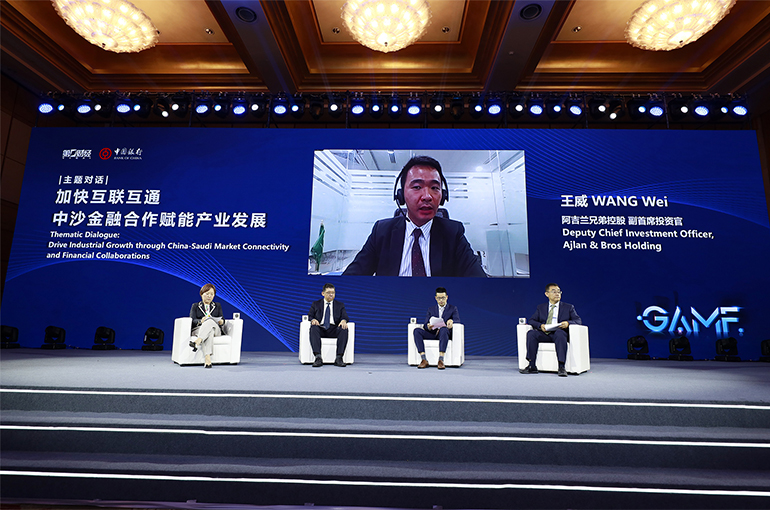 Shanghai Global Asset Mgmt Forum Examines Yuan Internationalization, China-Middle East Investment
Shanghai Global Asset Mgmt Forum Examines Yuan Internationalization, China-Middle East Investment(Yicai) Oct. 11 -- The internationalization of the Chinese yuan and the two-way investment prospects between China and Arab countries were among the main themes of the special international session of this year’s Shanghai Global Asset Management Forum, co-hosted by Bank of China and Yicai.
Middle Eastern investors are interested in the Chinese yuan, but they face obstacles related to the currency’s exchange rate and its peg to the US dollar, Chen Jie, general manager of BOC’s Abu Dhabi branch, said at the forum yesterday. It is important to explain to them the investment potential of the Chinese market and related return possibilities to boost their confidence in the yuan, he added.
Commercial banks should play a role in providing capital market assistance to Middle Eastern entities and promoting the use and internationalization of the Chinese yuan in the Middle East, according to Chen.
BOC was the first Chinese commercial bank to open a branch in the Middle East in Abu Dhabi in 2013. Its operations in the region cover a wide range of financial services, including deposits and loans, cash management, and fund transactions.
An increasing number of Chinese companies see Dubai not only as a trade hub but also as a gateway for regional overseas expansion, Marwan Al Marri, regional director for Asia at the Dubai Chamber, said at the forum.
With its accession to the BRICS, the United Arab Emirates began to attract more and more Chinese investors from sectors such as manufacturing, real estate, and business services, Al Marri added. The main areas of collaboration are digitalization, sustainable development, and renewable energies.
More than 5,000 Chinese companies are registered with the Dubai Chamber, over 1,000 of which did so in the first eight months of this year, according to data disclosed by Al Marri.
In the six months ended June 30, the trade value between China and Arab countries reached USD50 billion, with USD32 billion being imports from China, including machinery, cars, and construction equipment, said Abhishek Dhingra, senior vice president of Group Strategy at First Abu Dhabi Bank. The UAE invested USD10 billion through the Belt and Road Initiative in the period.
Middle Eastern entities’ investment in China began many years ago, with their understanding of the Chinese market becoming increasingly deep, Jacqueline Zhang, deputy GM at Ping An Asset Management, said at the forum. However, there is still a need to further analyze the Chinese market and communicate with Middle Eastern partners, she added.
More than 8,000 Chinese firms have opened offices or expanded in the UAE. Last year, Chinese investment in the UAE reached USD1.7 billion, up 16.5 percent from the previous year. UAE investment in China surged 120 percent in the period.
Editor: Futura Costaglione